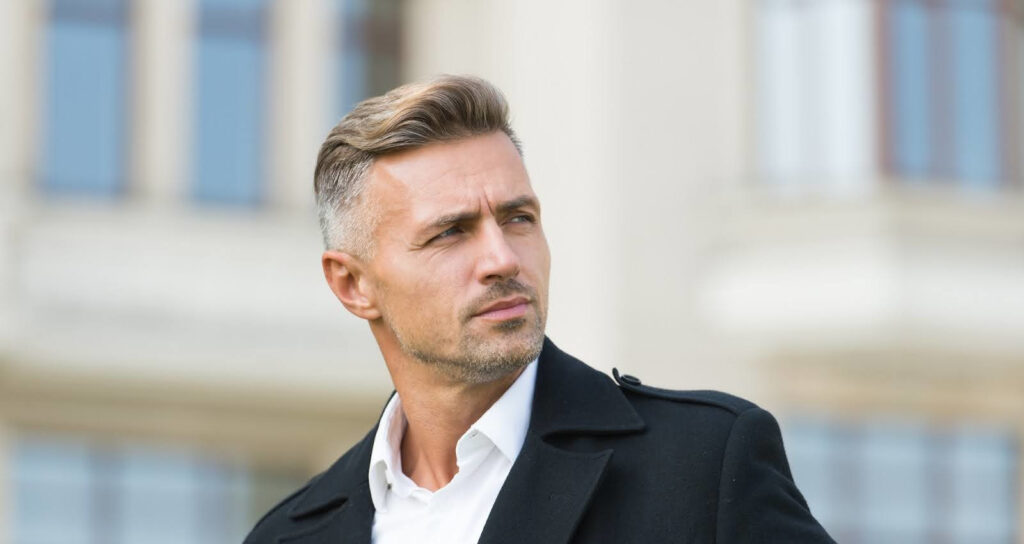Considering a hair transplant? At Nashville Hair Doctor, we understand that recovery time is one of the most pressing concerns for anyone considering a hair transplant. You might wonder, “How long should you rest after a hair transplant?” The good news is that with our advanced follicular unit extraction (FUE) hair transplant procedure, the downtime is minimal, allowing you to return to your daily activities sooner than you might think. Read on to learn more about what to expect from the recovery process, and complete your free quote request today to get started!
How to Rest After a Hair Transplant
Understanding the Hair Transplant Process
The FUE hair transplant is a modern, minimally invasive surgical procedure that our experienced NeoGraft® technicians perform. During this procedure, hair follicles are carefully extracted from a donor area, typically located at the back or sides of the head, and then meticulously transplanted into the thinning or balding areas on the scalp. This innovative technique ensures a natural-looking and permanent result without leaving a linear scar—a common occurrence with traditional hair transplant methods.
The entire process is designed to prioritize patient comfort, with most individuals reporting minimal pain during the procedure. We use local anesthesia to manage discomfort in the extraction and transplantation sites. It’s also helpful to know that the recovery time after a FUE hair transplant is typically shorter than other methods. This allows men to return to their regular activities relatively quickly.
The FUE hair transplant procedure offers an effective and comfortable way to restore natural hair growth and achieve a fuller head of hair without the drawbacks of older, more invasive techniques.
How Much Recovery Time Is Necessary?
With any cosmetic procedure, you can expect to spend some time in recovery. Several factors influence the amount of hair transplant downtime you’ll need after a treatment:
- The size of the treated area: Larger areas may require more time to heal compared to smaller areas.
- The patient’s overall health: Good overall health can contribute to a faster recovery.
- The individual’s natural healing process: Each person’s body may heal at a different pace based on their unique healing abilities.
- Adherence to post-transplant care instructions: Following the recommended care instructions is crucial for a successful and timely recovery.
At Nashville Hair Doctor, we closely guide each patient to ensure the best possible recovery experience.
Side Effects of Hair Transplants and How to Manage Them
After getting a hair transplant, you might experience common side effects like swelling, redness, and slight discomfort in the treated areas. These effects are usually mild and temporary and typically go away within a few days. To help with these symptoms, we suggest following our detailed aftercare instructions, which include keeping your scalp clean and avoiding strenuous activities for a few days. Our specialists are available to support you and answer any questions you might have during your recovery.
Preparing for Rest After Your Procedure
Many prospective patients wonder how many days of rest after a hair transplant are necessary. Most patients find that taking just one or two days off work is sufficient. During this time, it’s important to rest and allow your body to begin the healing process. You might experience minor swelling and redness, but this should subside quickly. Most patients feel comfortable resuming light activities by the third day following their procedure.
However, most patients prefer to abstain from social obligations until visible signs of the hair transplant are hidden. It usually takes 7-10 days for the punctures to scab over, fall off, and look completely “normal” again. The natural hair growth cycle kicks off in the third month for most men.
Caring for Your Scalp After a Hair Transplant
Once your hair transplant is complete, you will be excited as you anticipate the results. It is crucial to take care of your scalp for optimal healing and success to ensure the best possible outcome. Here are some tips for post-hair-transplant care:
- Gently cleanse your scalp: A few days after the procedure, gently wash your scalp with a mild shampoo to maintain cleanliness and prevent potential infections.
- Shield from sunlight: When outdoors, we recommend wearing a loose-fitting hat to protect your scalp from direct sunlight and environmental pollutants.
- Internal care: Staying hydrated and consuming a well-rounded, nutrient-rich diet can promote faster healing and support your body’s recovery process.
Your body is diligently working to heal, and providing it with the necessary nutrients and proper care can make a substantial difference in overall healing. Following these steps can ensure the best outcome for your hair transplant journey.
Returning to Regular Life Following a Hair Transplant
It’s important to understand what to expect in the months after the procedure. In the first few weeks, some patients may experience temporary shedding of the transplanted hair, but this is a normal part of the process as the follicles adjust. By the third month, new hair growth should become noticeable. Over the following months, you can expect to see a gradual improvement in hair density and thickness. Full results are typically seen after 12-14 months as the transplanted hair fully grows in and matures. It’s essential to follow the post-hair-transplant aftercare instructions provided by your doctor to support the long-term success of your hair transplant.
Don’t let worries about downtime hold you back from achieving the hairline you’ve always wanted. Contact Nashville Hair Doctor today for a free quote and take the first step toward restoring your confidence. Check out our before and after photos to see the amazing transformations our clients have experienced, and know we are here to support you every step of the way.
By choosing Nashville Hair Doctor, you’re opting for a reliable and effective solution to hair loss with minimal downtime. Contact us today!

